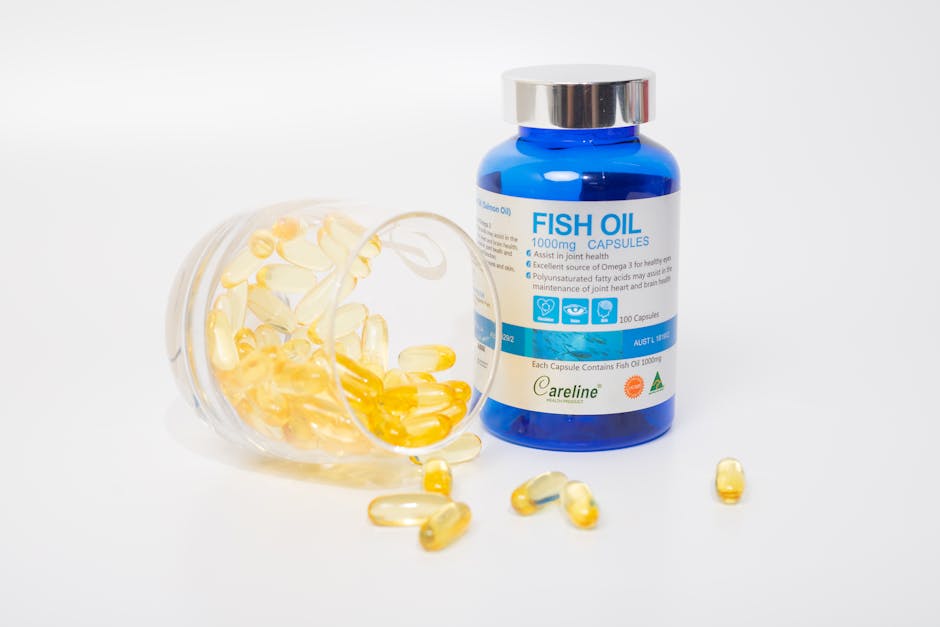Essential fatty acids, crucial components of cellular structure and function, are vital for maintaining overall well-being. Among these, omega-3 fatty acids stand out for their significant contributions to cardiovascular health, brain function, and immune system regulation. Fortunately, a range of dietary options provide rich reservoirs of these beneficial fats.
A deep dive into the nutritional landscape reveals a variety of foods excelling in omega-3 content. This exploration will guide you through the best sources and illuminate the nuances of incorporating these beneficial lipids into your diet effectively.
Fatty Fish: Aquatic Powerhouses of Omega-3s
A prime category of omega-3-rich foods comprises fatty fish. These aquatic creatures, diligently accumulating omega-3s from their diet, are a significant source for humans. Salmon, a globally popular choice, consistently appears high on the list. Its rich, oily flesh packs a potent punch of EPA (eicosapentaenoic acid) and DHA (docosahexaenoic acid), two crucial omega-3s crucial for brain development and function, as well as heart health. Other esteemed options include mackerel, tuna (especially albacore), sardines, and herring. A regular inclusion of these fish, ideally twice weekly, can significantly enhance omega-3 intake. However, it’s prudent to select sustainably sourced fish to minimize environmental impact.
Plant-Based Powerhouses: A Diverse Palette
Surprisingly, plant-based sources offer valuable omega-3s, albeit in a different form. Alpha-linolenic acid (ALA) is the plant-derived omega-3 fatty acid. While our bodies can convert ALA into EPA and DHA, this conversion rate is often limited. This limitation means that relying solely on plant-based sources to obtain sufficient EPA and DHA might prove inadequate. Nonetheless, incorporating these plant-based options into a varied diet is undeniably beneficial.
Flaxseeds and Chia Seeds: Tiny Seeds, Mighty Benefits
Tiny flaxseeds and chia seeds emerge as noteworthy ALA-rich sources. Their nutty flavour and versatility lend themselves well to various culinary applications, enhancing both nutritional value and dietary pleasure. Sprinkling these seeds onto cereals, salads, or smoothies effectively boosts omega-3 intake.
Walnuts: A Nutty Boost for Omega-3 Health
Walnuts, renowned for their delightful crunch and nutritional prowess, also serve as a valuable source of ALA. Their inclusion in salads, yogurt, or as a snack provides a convenient way to incorporate omega-3s into daily routines.
Other Notable Plant-Based Sources: Beyond the Basics
While flaxseeds, chia seeds, and walnuts prominently feature, other plant foods contribute to a balanced omega-3 intake. Hemp seeds, rich in ALA, are another great option. Algae-based products, particularly spirulina and chlorella, can provide a source of EPA and DHA without the consumption of fish. However, it is vital to consult with healthcare professionals regarding the efficacy of such products, especially for those with underlying health conditions or who are under medication.
Dietary Considerations for Optimal Absorption
Maximising the benefits of omega-3 consumption necessitates attention to specific dietary factors. Combining omega-3-rich foods with healthy fats such as olive oil or avocados can enhance their absorption. A diet rich in antioxidant-rich foods, including fruits and vegetables, supports the overall health benefits of omega-3 fatty acids.
Practical Tips for Incorporating Omega-3s into Daily Meals
Integrating omega-3 sources into daily routines is significantly easier than many might imagine. Including fatty fish in your weekly meal plan, incorporating flaxseeds and chia seeds into smoothies or salads, and snacking on walnuts are just a few examples. The key is consistency and a balanced approach.
Beyond Food Sources: Supplement Considerations
While a balanced diet is always paramount, dietary supplements might be considered in certain circumstances. Consult a registered dietitian or healthcare professional before initiating any supplementation regime. They can help you determine if supplements are necessary and recommend appropriate dosages to avoid potential negative interactions with existing medications.
Concluding Remarks on Omega-3 Sources
Omega-3 fatty acids, with their profound impact on various aspects of health, deserve a prominent place in a balanced diet. Consuming a variety of omega-3-rich foods, including fatty fish, plant-based options, and strategically planned supplements (if necessary), is critical. This approach promotes not only optimal nutrient intake but also empowers you to take proactive steps towards a healthier, more vibrant lifestyle. Remember, maintaining a diverse and balanced diet, rich in essential nutrients, lays the foundation for long-term well-being. Remember to always consult a healthcare professional before making significant dietary changes.
